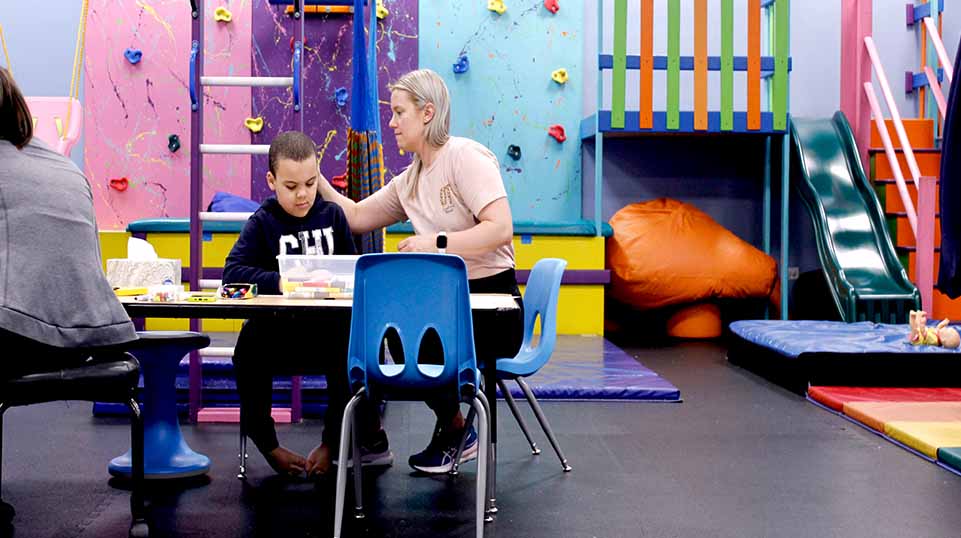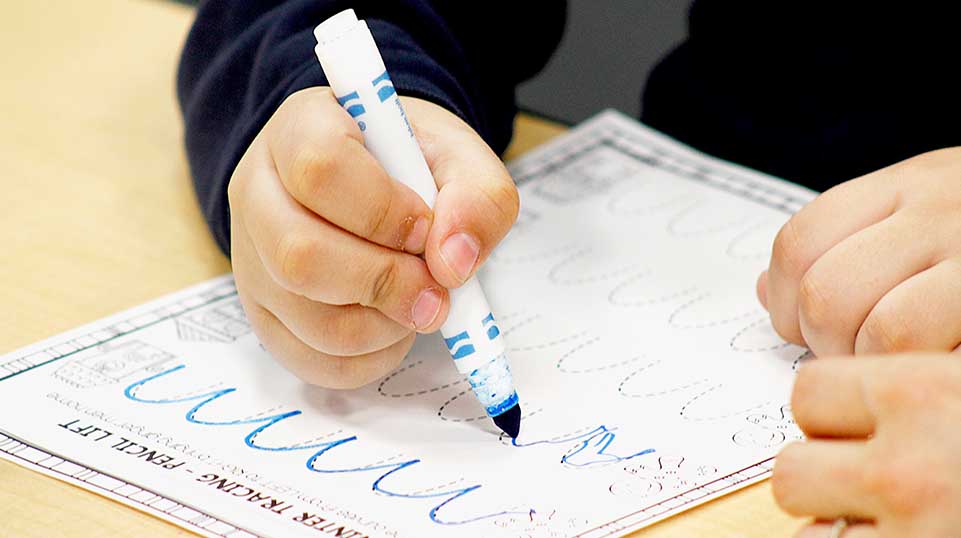You may be wondering if ABA Therapy is a replacement for school. Perhaps you’re deciding between preschool and ABA Therapy, or if you should do both. Maybe your child has already been in a school setting, but it has not gone smoothly. The question around ABA Therapy and school is one we receive frequently, and it involves the consideration of many factors.
Deciding what type of setting your child will thrive in is a significant decision. In this article, we’ll review some of the similarities and differences to consider when looking at ABA Therapy and school.
Is ABA Therapy the same as school?
ABA Therapy is not a traditional school. However, there is a lot of overlap between the skills learned in ABA and those learned in a traditional school. Many children benefit from the 1:1 attention and skill-building that ABA provides in order to set them up for success in school later on.
At Westside, we offer several ABA school readiness programs that are designed for children to graduate into the school environment, and to give them the skills and tools they will need to be successful in school and beyond.
There are some similarities and differences between ABA Therapy and the traditional school setting. Here’s an overview:
Similarities between ABA Therapy and Traditional Schools
- Structured Environment – Both settings provide a structured environment with clear rules, routines, and expectations for behavior.
- Learning Goals – Both focus on teaching and learning goals. In ABA therapy, the goals are often individualized and specific to the needs of the individual with Autism, while in a traditional school setting, the goals are typically aligned with academic standards and curriculum.
- Instructional Strategies – Both settings use instructional strategies to teach new skills. These may include breaking down tasks into smaller steps, providing visual support, and using reinforcement to encourage desired behaviors.
- Group-based activities and play – Like in a traditional school, ABA at Westside involves group-based activities so children can learn from their peers and work on social skills. We’ll review some of our ABA programs later in this article.
Differences between ABA Therapy and Traditional Schools
- Focus on Behavioral Skills – ABA Therapy places an emphasis on improving behavioral skills, such as communication, social interaction, and self-regulation, while a traditional school setting emphasizes a broader range of academic and social skills.
- One-on-one vs. Group Instruction – ABA Therapy at Westside is always 1:1 with a therapist, whereas a traditional school setting typically involves group instruction with a teacher leading a class of students. ABA Therapy involves highly individualized instruction, with the therapy sessions tailored to the unique needs and abilities of the child. In contrast, a traditional school setting typically follows a standardized curriculum for a group of students.
- Focus on Behavior Support – ABA Therapy places a heavier emphasis on behavioral strategies, such as reinforcement and faded prompting, to encourage positive behaviors and reduce problematic behaviors.
It’s important to note that while there are some similarities and differences between ABA therapy and a traditional school setting, they can also complement each other. The specific approach and intervention plan should be based on the child’s unique needs and goals and may involve collaboration between ABA therapists, educators, and other professionals.

What is Westside’s IGNITE Program?
If you’re looking for a preschool-like program for your child with Autism, let us introduce you to IGNITE – an ABA daytime program designed specifically for kids aged 2-6. IGNITE focuses on school readiness and aims to help children gain the skills they need to learn in a group environment, setting them up for success as they transition to a school setting.
One of the unique features of IGNITE is the 1:1 instruction each child receives. This means that your child will have dedicated 1:1 time with a trained therapist who will work closely with them to teach the skills needed to thrive in a group setting. This individualized approach allows for targeted instruction and supports tailored to your child’s unique needs and abilities.
The goal of IGNITE is to help your child develop the skills necessary to participate in a school setting with their peers, while also addressing the core deficits commonly associated with Autism, such as communication, social interaction, and self-regulation skills. By focusing on these fundamental skills, IGNITE aims to empower your child with the tools they need to succeed in school.
We understand that every child is different, and our program is designed to be flexible and adaptable to meet the unique needs of each child. Our team of experienced therapists will work closely with you and your child to create an individualized plan that aligns with your child’s goals and developmental progress.
We know that navigating the world of Autism can be challenging, but at Westside, we’re here to support you and your child every step of the way. We believe that every child has the potential to learn and thrive, and we’re committed to providing a nurturing and supportive environment where your child can flourish.
If you’re interested in learning more about IGNITE and how our ABA daytime preschool-like program can benefit your child, please reach out to us. We’d be happy to provide more information and answer any questions you may have.
If you have an older kid, you may be interested in our RISE program for 5-8-year-olds, or our after-school FOCUS program.
You can learn about all of our ABA therapeutic programs here.
For more information, check out our other ABA Therapy blogs, such as:







